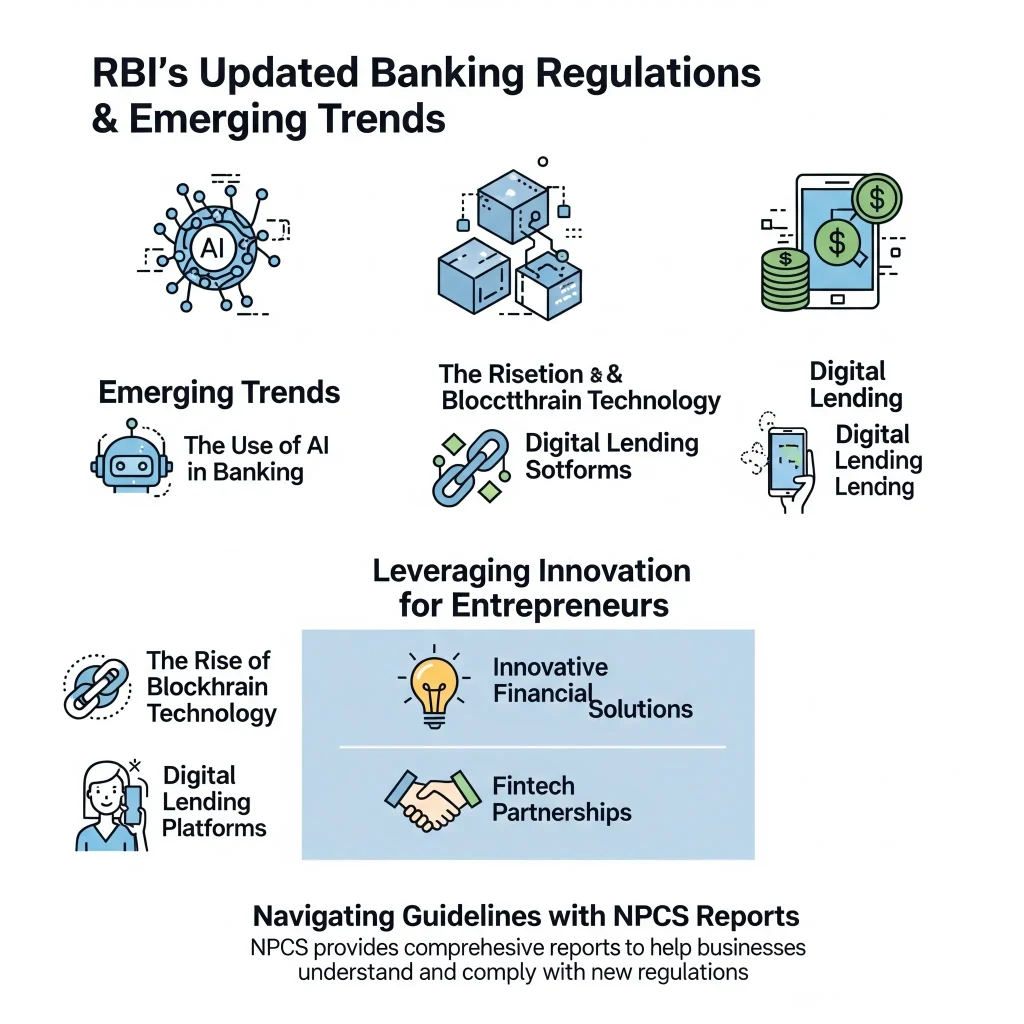The Reserve Bank of India (RBI) plays an important role in maintaining the country’s financial stability and shaping economic policies. As the central bank, it monitors and regulates banking operations, implements monetary policy, and issues guidelines that ensure financial institutions operate smoothly.
RBI advisories to banks carry weight since they affect lending practices, risk management, liquidity, and compliance standards. Entrepreneurs and banking professionals must understand these advisories to navigate the financial environment effectively.
Niir Project Consultancy Services (NPCS) supports stakeholders by providing Market Survey cum Detailed Techno-Economic Feasibility Reports. These reports cover regulatory analysis, financial planning, and operational guidelines, helping businesses and banks assess risks and opportunities effectively.
Detailed project report
Role of RBI in the Banking Sector
The RBI serves as a regulator, supervisor, and policy maker for India’s banking system. It ensures that banks follow prudent norms, maintain liquidity ratios, and comply with statutory requirements. Advisories issued by the RBI guide banks in risk mitigation strategies, strengthen credit management, and help them meet the central bank’s monetary policy goals. These advisories encompass areas such as credit allocation, asset classification, capital adequacy, and digital banking guidelines.
Key Advisories and Their Impact
RBI advisories often aim to strengthen financial stability, improve governance, and encourage responsible banking. Key focus areas include credit risk management, corporate governance, financial inclusion, and technology adoption. By guiding banks on these issues, the RBI helps decrease non-performing assets, improve customer protection, and promote transparency.
Entrepreneurs seeking funding or banking services must understand these advisories because they affect lending rates, collateral requirements, and credit availability.
Digital Banking and Technological Guidelines
In recent years, RBI advisories have underscored digital banking, cybersecurity, and the adoption of fintech solutions. Banks are encouraged to upgrade their infrastructure, establish strong security measures, and support digital transactions. Entrepreneurs benefit from this guidance since it improves access to banking services, streamlines payments, and supports e-commerce efforts.
Following these guidelines also lowers operational risks and builds trust among customers and business partners.
To explore more, check our books
Financial Inclusion and Priority Sector Lending
RBI advisories frequently stress the importance of financial inclusion and priority sector lending. Banks are directed to provide credit to agriculture, small businesses, and marginalized sectors to promote inclusive growth.
These steps create opportunities for startups and SMEs to secure funding and grow their operations. Understanding priority sector guidelines helps entrepreneurs discover funding options, optimize loan structures, and plan their business growth effectively.
Risk Management and Regulatory Compliance
The RBI’s risk management advisories assist banks in protecting their assets and maintaining financial stability. Recommendations include stress testing, internal audits, and monitoring exposure to high-risk sectors.
Following these advisories ensures that banks operate within safe limits and minimizes systemic risks. Entrepreneurs and business owners benefit indirectly since a stable banking system builds confidence, ensures smooth credit flow, and provides timely access to financial services.
Market Trends and Opportunities

The RBI continues to update banking regulations to meet global standards, improve transparency, and support sustainable lending practices. Emerging trends include the use of artificial intelligence, blockchain technology, and digital lending platforms. Entrepreneurs can take advantage of these trends by adopting innovative financial solutions, forming fintech partnerships, and enhancing operational efficiency.
NPCS offers detailed reports on regulatory frameworks, financial management, and operational feasibility, which help businesses navigate RBI guidelines effectively.
Conclusion
RBI advisories serve as vital guidance for banks to sustain financial stability, implement sound risk management, and encourage responsible lending. Entrepreneurs, SMEs, and banking professionals gain from understanding these advisories, as they affect credit availability, operational risk, and market prospects.
Niir Project Consultancy Services
Niir Project Consultancy Services (NPCS) provides Market Survey cum Detailed Techno-Economic Feasibility Reports that deliver actionable insights on banking regulations, compliance, and financial strategies. By utilizing these reports, businesses can make informed choices, lower financial risks, and align their operations with India’s dynamic banking sector.
Discover the best business ideas for yourself using our startup selector tools
Frequently Asked Questions
What role does RBI play in the banking sector?
The Reserve Bank of India regulates, supervises, and guides banks to ensure financial stability and compliance with monetary policy.
Why are RBI advisories important for entrepreneurs?
They affect lending rates, collateral requirements, and access to credit, which directly impact entrepreneurs and SMEs.
What areas do RBI advisories cover?
They focus on risk management, digital banking, financial inclusion, governance, and priority sector lending.
How does RBI promote financial inclusion?
By advising banks to increase lending to agriculture, MSMEs, and underbanked populations, we support inclusive growth.
How can businesses understand RBI guidelines better?
NPCS offers detailed feasibility and regulatory reports to help businesses align with RBI standards and reduce risks.







